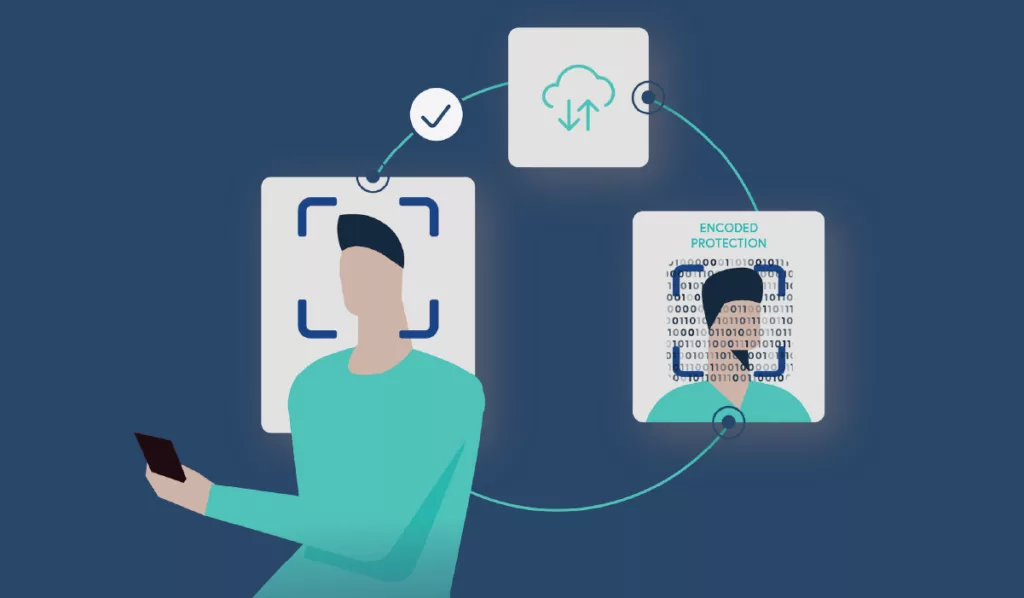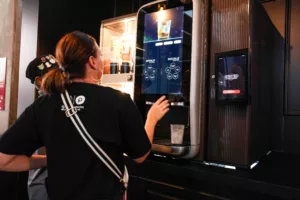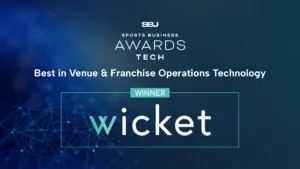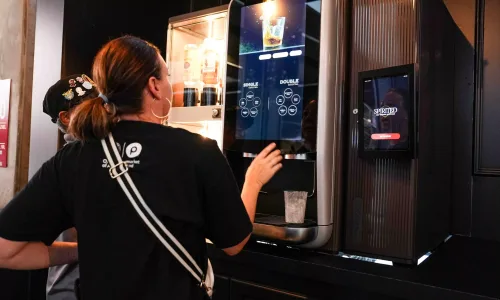Consumers have become accustomed to using facial biometrics for convenience—to unlock their iPhone or pass through airport security. However, some privacy activists express concern about any use of biometric identification for any purpose—even for opt-in scenarios with trusted organizations.
To navigate these concerns, it’s crucial to understand the misconceptions surrounding new technology and address them head-on.
While we can’t speak for all developers of biometric solution providers, we can speak to Wicket’s approach to concerns we’ve heard from customers, users, and online resources.
Misconceptions
Misconception 1
“Is this used for surveillance?”
Some believe that every deployment of facial recognition ties back to a centralized database that can be used for surveillance.
THE REALITY
Wicket is only used to speed up transactions.
Some companies provide facial recognition solutions for security purposes. Wicket uses the technology to assist transactional use cases of enrolled users.
Misconception 2
“This industry is unregulated.”
The conversation surrounding biometrics has been mired in misinformation and fear mongering, which has led some to believe there are no regulations in place.
THE REALITY
There are regulations; Wicket adheres to all
There are various regional laws and established guidelines that Wicket complies with, including but not limited to GDPR and BIPA.
Misconception 3
“User data is collected without consent.”
It is documented that some biometric software providers have photo databases that are “scraped” off the internet or social media.
THE REALITY
Wicket requires user consent and opt-in
Any biometric data in the Wicket system is provided directly by end users and customers, with various data purging controls in place.
In a similar vein, users and customers also often have questions about Wicket’s technology and how we use the biometric information provided to us.
Frequently Asked Questions
Question 1
”Is the Wicket system biased?”
There are studies that have shown some facial recognition systems are susceptible to bias and can be inaccurate for certain ethnicities.
THE REALITY
Wicket has been tested by NIST FRVT
Wicket’s systems have been independently tested and been proven to not have bias based on demographics by the National Institute of Information and Technology (NIST).
Question 2
”Is user data sold or shared to 3rd parties?”
There is potential incentive to sell facial recognition data, which may be monetized with or without user consent
THE REALITY
Wicket does not monetize data sharing
Wicket is the data processor for our customers, who own their user data. Wicket does not monetize user data through 3rd party sharing.
Question 3
“Why do you use facial biometric solutions?”
There are already ways to scan a ticket, swipe a credit card, and gain access to events or facilities—why are facial biometrics needed?
THE REALITY
Facial biometric solutions are better for users
Wicket uses facial authentication as it’s faster, more convenient, and simpler to use–all of which are important factors for our customers.
There is much misinformation surrounding facial recognition and other biometric methods of authentication. Understanding the realities behind biometric technologies like facial recognition is key to dispelling the myths and addressing privacy concerns.
At Wicket, we take a proactive approach to ensure that our use of biometrics is ethical, transparent, and user-focused. We are committed to providing a solution that prioritizes privacy, operates within established regulations, and fosters trust through clear consent processes. As biometric technology continues to evolve, it’s essential for companies and consumers alike to engage in open, informed discussions to ensure that these innovations serve to benefit everyone—without compromising privacy or security.







